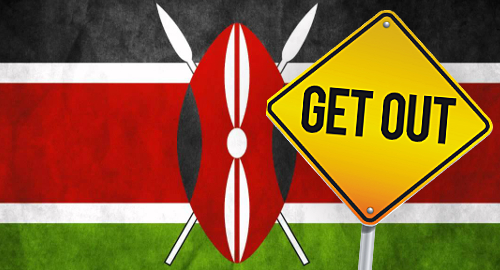 International online sports betting operators could be barred from operating in Kenya if new legislative proposals are approved.
International online sports betting operators could be barred from operating in Kenya if new legislative proposals are approved.
Kenya was considering new gambling legislation last year before that bill was scrapped and its tax provisions inserted into a separate Finance Bill. The government promised at the time to introduce a new gambling bill that would impose tighter curbs on the gaming industry.
In late December, Kenyan MP Jakoyo Midiwo introduced a draft of a new Betting, Lotteries and Gaming (Amendment) Bill that would dramatically revamp the country’s gambling landscape, including requiring all online gambling firms to be wholly owned by Kenyan nationals.
Earlier this month, Betting Control and Licensing Board (BCLB) chairman Anthony Kimani Kung’u told Business Daily Africa that while Kenya’s existing gambling legislation was “in dire need of alignment with the phenomenal growth of the industry,” he felt Midiwo’s legislative proposals had “shortcomings that will roll back significant gains made in the industry.”
The Association of Gaming Operators in Kenya (AGOK) also has issues with Midiwo’s proposals. In a letter sent to the National Assembly last week, CEO Harrison Ikunda said AGOK members “oppose the bill in its entirety” and called on the government to consult with stakeholders to “develop a workable framework to bridge the perceived gap between legislation, regulation and industry realities.”
Referencing the proposed ban on international ownership, Ikunda expressed “grave concern” that such a limitation would be in “violation of the constitutional protection of foreign investors.” Ikunda noted that even local sports betting giants SportPesa are partially owned by foreign investors and thus would be forced to exit the market.
Swedish betting exchange SpiffX recently inked a deal with Kenya’s Cheza Gaming Ltd to launch SpiffX’s Take5live betting site sometime over the next few months. Such an arrangement would be unworkable under Midiwo’s legislation.
Midiwo’s bill would also impose severe marketing restrictions and reintroduce a tax on gambling winnings, in addition to the new operator taxes that took effect on January 1. In addition, only Kenyans 25 years or older could gamble, while gamblers would be subject to limits on the amount of time and money they could spend, and even on how much they can win.
Another proposal would bar Kenyan telecom firms from doing business with sports betting operators, instead forcing betting operators to set up their own telecommunications platforms. The BCLB’s Kung’u scratched his head at this portion of the bill, saying “we are supposed to be supporting enhancements in technology, not retrogressing when it comes to delivery of services.”
Kenya has one of Africa’s more liberalized gambling regimes, including a thriving online and mobile sports betting market. Kung’u said there are about 10 “major players” currently serving the Kenyan market – including Bet365, Betway, 256Bet, Betin, BetYetu, eazibet, EliteBet, go-bet, JustBet, Lucky2u and Royal Kenya Bets – and “more than 30 license holders who are yet to get in.”
One of those reportedly looking to enter Kenya is Asian online betting giant Dafabet. The company recently registered a @DafabetKenya Twitter handle and local media outlet The Standard reported on the weekend that Dafabet was poised for an imminent local launch, however, the article was mysteriously scrubbed from The Standard’s website by Monday.